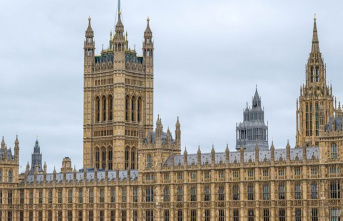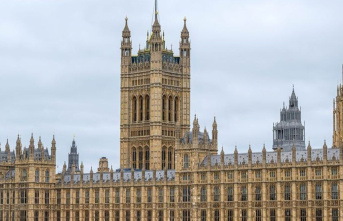"Now is the moment when you have to have this debate," says publicist and SPD politician Yannick Haan in the 438th episode "important today". "Disinherit us at last" is the title of the book Haan wrote after he inherited it himself. It wasn't an empire, not millions like he says, but enough to change his life. The author was able to buy two apartments from his inheritance – one in which he lives and one that he rents out. "It gave me a security that I could never have had, a fortune that I could never have earned with a normal job." But is that fair?
What Haan didn't question in the past, he wants to debate today - and realizes that this is a topic that many don't want to talk about. "Several factors come together: the death of a relative, then in Germany the money factor in particular is something very intimate that we don't like to talk about," says Haan. According to the author, the inheritance involves incredible sums. Between 300 and 400 billion are inherited in Germany every year. For comparison: the German federal budget is just over 500 billion euros. According to Haan, the state only takes a fraction of this through inheritance tax, in 2021 it was around 11 billion euros. Revenue from income tax, on the other hand, was 340 billion euros. "We tax work very high and property very low, that's unfair," says Haan.
"The promise of democracy, everyone can do it, every vote counts - that's no longer the case today." Earning wealth is hardly possible anymore. "40 percent of the population have no savings and are unprotected at the mercy of all these crises," says the author. And at the same time, the assets of the super-rich are often not taxed or loopholes found. Inheritance tax also becomes regressive from 10 million euros: "That means: Whoever inherits more pays less tax. That no longer corresponds to the sense of justice," says Yannick Haan. The so-called company assets are also problematic – an example: “You pay taxes for three apartments, and for 300 apartments the tax office says ‘this is business assets’, you no longer pay inheritance tax,” explains the publicist in the podcast. So anyone who inherits a house pays more taxes than companies.
No wonder real estate and land revaluations are causing an outcry this year. This could increase inheritance tax for some who inherit a home. In the debate about inheritance tax, the specter that the state wants to grab the family home is raised again and again, says Yannick Haan: "If you go into the details, for the vast majority nothing has changed." The problem: The knowledge about the inheritance tax is shockingly low for many. "Anyone who inherits a house or an apartment is not one of society's losers," says the publicist. The inheritance tax, which is incurred outside the tax allowances, is usually manageable. "We have a lot of wealth in Germany, but we distributed it very badly. In order for the gap between rich and poor to close again, inheritance is where it's easiest to get hold of and where the greatest injustices are."
Your subscription to "important today"












